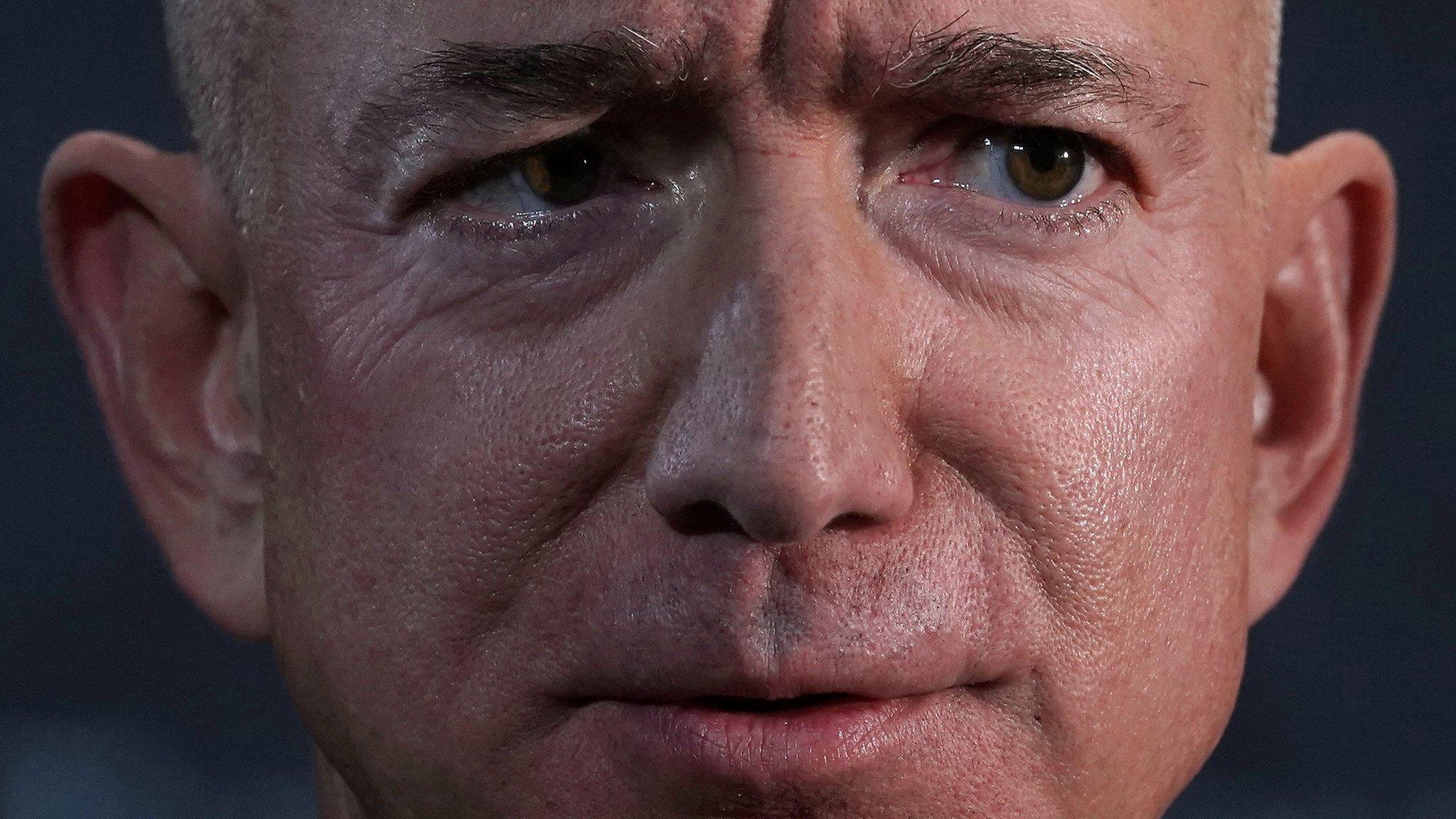Why do billionaires want to own the news?
- Published
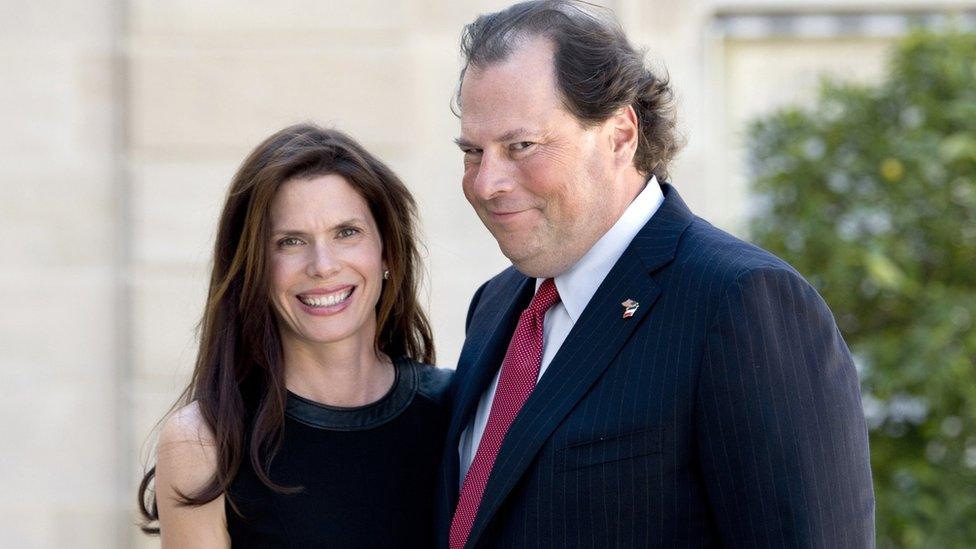
Marc and Lynne Benioff will not be involved in any editorial decisions at Time magazine
What does a person who already has everything want: another sports car, a bigger yacht, or maybe a champion sports team?
Increasingly, the answer seems to be a high profile newspaper or magazine that has fallen on hard times.
Business moguls - even those whose values were forged long after the era of Citizen Kane and Watergate -, are proving keen to buy into the buzz of the newsroom.
The latest example came this week when Marc Benioff and his wife announced they were buying the venerable Time, a magazine that has reflected America's outlook on world events since 1923. Donald Trump, for one, is one of the many rich and powerful figures who still care about appearing on its red-bordered cover.
Mr Benioff co-founded the business software firm Salesforce.com and could well afford the $190m (£145m) he paid given his $6.7bn net worth.
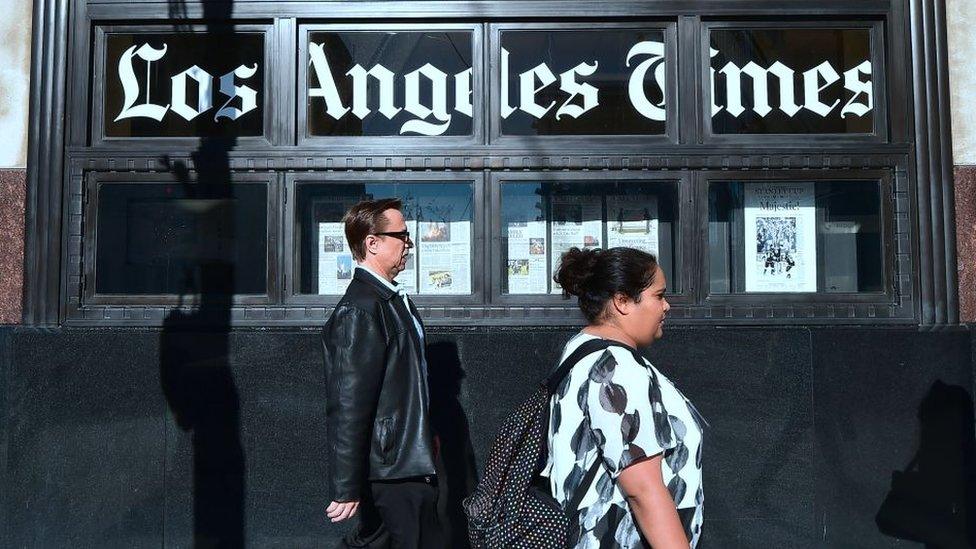
The Los Angeles Times was bought by biotech billionaire Patrick Soon-Shiong this year
He follows in the footsteps of Jeff Bezos, who five years ago used some of the billions he has made from Amazon to buy the Washington Post.
The same year he bought the Post, John Henry, the former fund manager who also owns the Boston Red Sox, bought the Boston Globe.
Shortly after that, hotel and casino magnate Sheldon Adelson bought the Las Vegas Review-Journal, the largest daily newspaper in Nevada. Last year, Laurene Powell Jobs, the widow of Apple founder Steve Jobs, took a majority stake in The Atlantic magazine through a social purpose organisation she chairs, called the Emerson Collective.
Earlier this year Patrick Soon-Shiong, the South African-born biotech billionaire, bought the Los Angeles Times and a several other West Coast titles.
It's easy to see why media organisations, battling the unfavourable odds of falling sales and fierce competition for online advertising revenues, are ready to embrace news-enamoured sugar daddies.
They are under "enormous pressure" says Douglas McCabe, media analyst at Enders Analysis, in part due to early decisions not to charge for online access - and because advertisers are not willing to pay as much for digital ads as they have done for their print equivalents.
Those pressures have made the media sector a far less attractive prospect for investors.
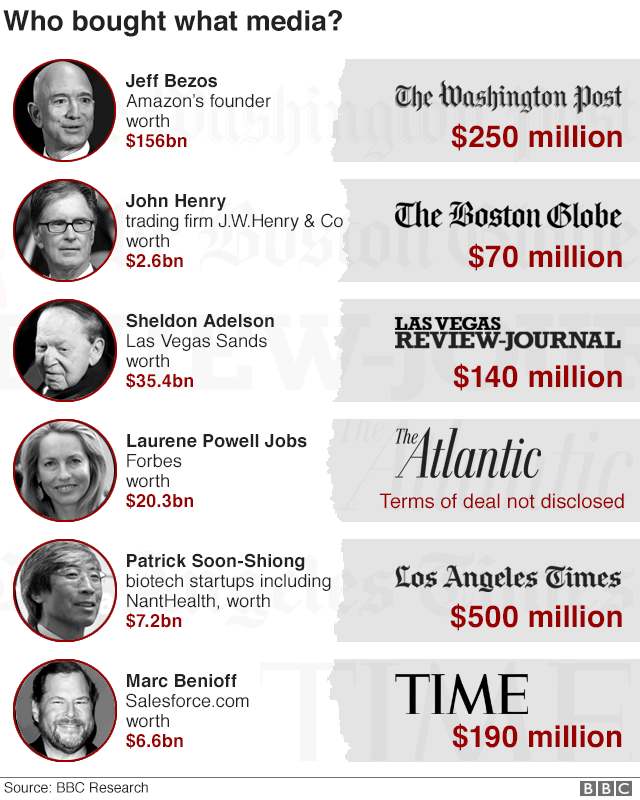
So if making money is not the object, what is motivating the moguls?
"The wealthy have always been attracted to news media, chiefly because influential media buys access and influence for owners," says Mr McCabe.
While that may be the case for some, there are other impulses driving the new breed of billionaire media barons, according to Dan Kennedy, associate professor of journalism at Northeastern University in Boston and author of The Return of the Moguls: How Jeff Bezos and John Henry Are Remaking Newspapers for the Twenty-First Century.
"I would say it's a combination of ego and a genuine belief that they can do good," he says. "They tend to believe that what these news organisations have lacked is their financial acumen, and if only they were the owners they would start to do well again."
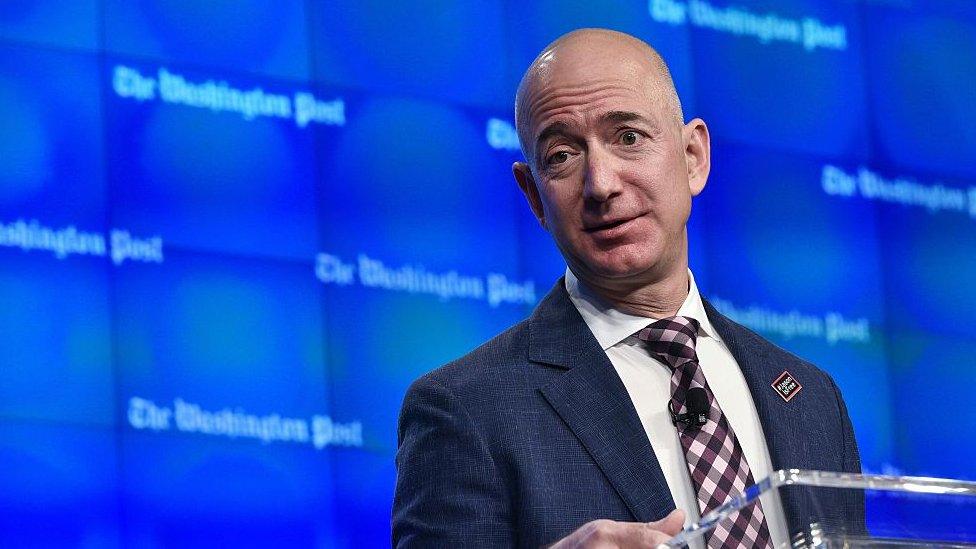
Jeff Bezos has given more resources to the Washington Post
In the case of Jeff Bezos at the Post, that self-belief has largely been borne out, Mr Kennedy says. Partly leveraging Amazon's enormous reach to boost subscriber numbers, the DC-based paper has become a genuine rival to the New York Times.
Mr Bezos' success with the Post may well have inspired others, suggests Mr Kennedy.
While there were fears the Amazon founder may seek to promote Amazon's brand or business interests, or pursue political or economic agendas through the Post, that has not been the case, he says.
Other magnates, such as John Henry at the Boston Globe, may have taken a hand in a paper's editorial line, but have also maintained a studious distance from the newsroom itself. Instead they have tended to focus on developing new business strategies.
That doesn't mean tycoon investors lack a sense of public mission, however.
When Mr Soon-Shiong bought the LA Times this summer, he said he had partly been prompted by his experiences growing up in apartheid era South Africa where press freedom was curtailed.
He promised to tackle the scourge of fake news, describing it as "the cancer of our time". In a letter to readers he wrote that the newspapers he had bought would be "bastions of editorial integrity and independence" to "protect ... democracy and provide an antidote to disinformation".
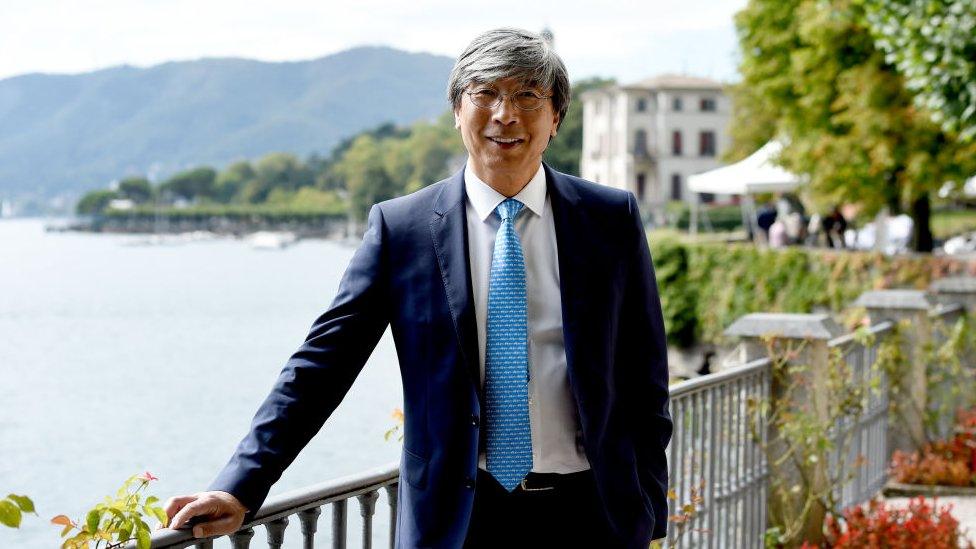
LA Times owner Patrick Soon-Shiong wants to tackle fake news, the "cancer of our time"
When Mr Bezos bought the Post he talked about its role in defending democracy, while Ms Powell Jobs' statement on investing in the Atlantic promised to ensure it continued to "fulfil its critical mission at this critical time".
So is it good news for the papers in question to have wealthy owners with an ambition to defend public debate?
"I think we have to think what the alternative is," Mr Kennedy contends.
Over the past half a century many news outlets have seen their staffing levels slashed by owners attempting to "squeeze out every drop of profit", he says.
"In that respect it's a good thing there are public spirited individuals who want to take a chance on newspaper," he says.
But that doesn't mean they will always succeed.
Facebook co-founder Chris Hughes bought the 100-year-old magazine The New Republic in 2012, but sold it four years later after investing $20m but failing to prevent an exodus of both staff and readers.
Mr Kennedy says he's spoken to Boston Globe owner John Henry in recent months and says that although he has tried several tactics "to see what will stick", he now seems frustrated at how hard it has been to revive the paper's fortunes.
The academic also warns Time's new owner, Mr Benioff, to be prepared for years of losses as the magazine tries to identify its new mission in a fast-changing media landscape.
- Published17 September 2018
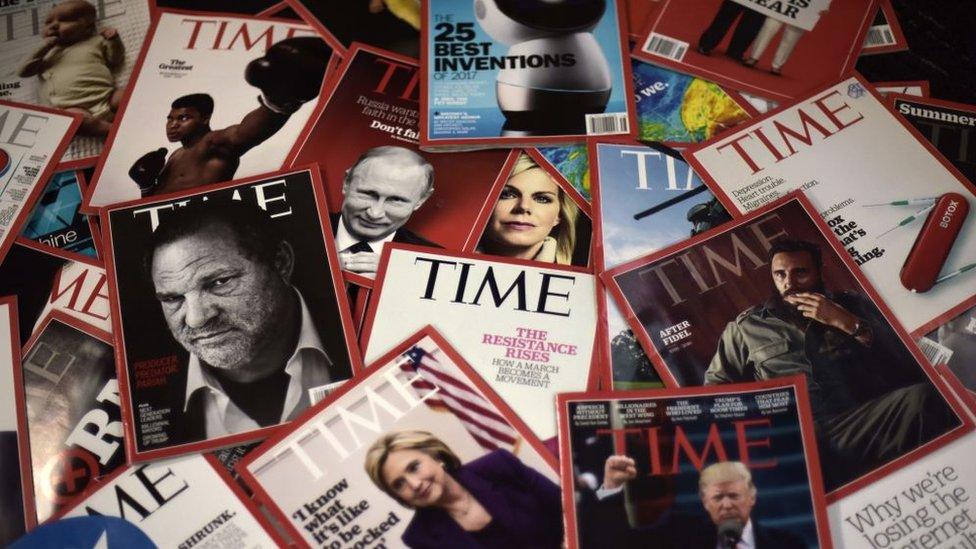
- Published16 September 2018
